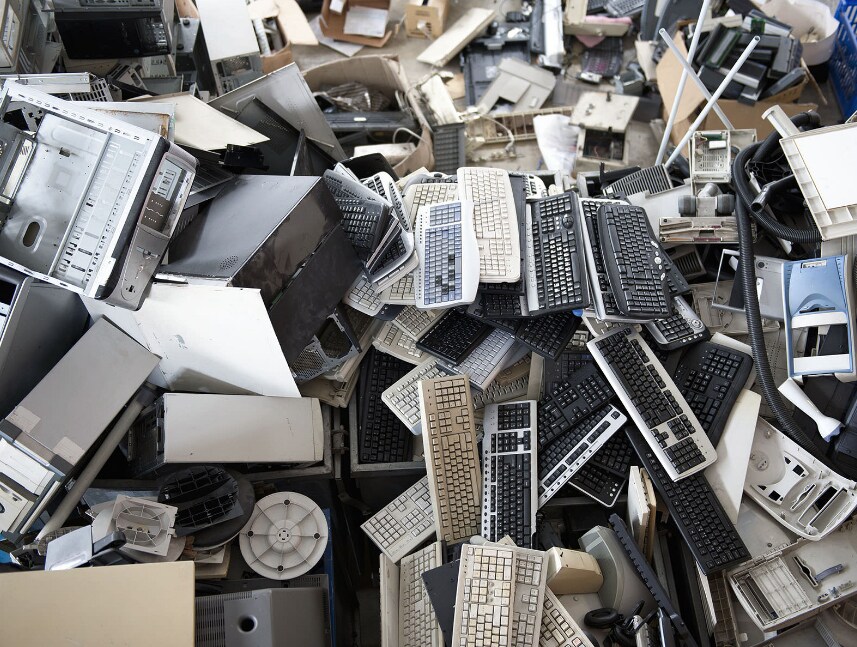1.1 Understanding Computer Scrap
Computer scrap refers to old, obsolete, or broken computer parts that are no longer in use. These components, often seen as junk, can include CPUs, motherboards, hard drives, RAM, and other electronic elements that still have value due to the materials they contain, such as copper, gold, and aluminum.
1.2 Why Sell Old Computer Scraps?
Selling old computer scraps is a great way to make money while contributing to environmental conservation. Electronic waste, or e-waste, is a growing problem worldwide, and selling your computer scraps helps in recycling valuable materials and reducing landfill waste.
1.3 Overview of the Article
In this article, we will explore various ways to sell your old computer scraps, including preparing them for sale, understanding their value, and finding the best platforms to maximize your profits.
2. Types of Computer Scraps
2.1 Common Types of Computer Scraps
- Circuit Boards (Motherboards, Graphics Cards): Contain valuable metals like gold and silver.
- Hard Drives: Can be sold as is or broken down for materials.
- Power Supplies and Cables: Contain copper wiring, which is highly recyclable.
- CPUs and Processors: These often have a high scrap value due to the gold content.
- RAM Modules: Contain precious metals and can be sold for their gold plating.
2.2 Value of Different Types
The value of computer scraps varies depending on the type of material. For example, circuit boards and CPUs generally fetch higher prices due to the precious metals they contain, while items like plastic cases and non-metallic parts have minimal resale value.
3. Preparing Your Computer Scraps
3.1 Sorting the Components
Properly sorting your computer scraps can increase their resale value. Separate metals, plastics, and electronic components, as buyers often pay more for well-organized lots.
3.2 Cleaning and Preparing for Sale
Clean your items by removing dust and residue. Ensure that any personal data is wiped clean, especially from hard drives, to protect your privacy.
4. Places to Sell Old Computer Scraps
4.1 Online Marketplaces
Platforms like eBay and Facebook Marketplace allow you to sell directly to buyers who may be looking for specific parts or bulk scrap.
4.2 Local Scrap Yards and Recycling Centers
Scrap yards often buy electronic waste for recycling. They are a convenient option if you want to sell your scraps quickly, though prices may vary.
4.3 Specialized E-Waste Buyers
Specialized companies that focus on e-waste recycling usually offer competitive rates for computer scraps, especially in large quantities.
4.4 Electronics Repair Shops
Some repair shops buy old parts for reuse or scrap. This is a good option if you have working components that can be repurposed.
4.5 Auction Sites
Auction sites provide a platform to reach a broader audience, potentially driving up the price through competitive bidding.
5. Top Online Platforms for Selling
5.1 eBay
eBay is a popular choice for selling computer scraps due to its large audience and flexible selling options. Ensure to create detailed listings with clear photos.
5.2 Craigslist
Craigslist offers a simple, no-fee platform to connect with local buyers. Be clear in your descriptions and be prepared to negotiate.
5.3 Facebook Marketplace
Facebook Marketplace allows you to list items for sale within your community. It’s easy to use and connects you with local buyers directly.
6. How to Get the Best Price
6.1 Knowing the Market Value
Research current market prices for different types of computer scraps. Understanding the going rate helps you negotiate better deals.
6.2 Negotiating with Buyers
Be prepared to negotiate prices, especially on platforms like Craigslist and Facebook Marketplace. Highlight the valuable aspects of your scraps to justify your asking price.
6.3 Timing Your Sale
Selling during times when there’s a high demand for computer parts, such as during electronics shortages, can help you get better prices.
7. Safety and Security Measures
7.1 Wiping Personal Data
Ensure all personal data is wiped from hard drives and other storage devices to protect your privacy. Use specialized software to erase data completely.
7.2 Handling Hazardous Materials
Be aware that some computer parts contain hazardous materials like lead and mercury. Handle them carefully and follow safety guidelines when disposing of or selling them.
8. Legal Considerations
8.1 Understanding E-Waste Regulations
Different regions have varying laws regarding the disposal and sale of e-waste. Ensure you comply with local regulations to avoid legal issues.
8.2 Certifications to Look for in Buyers
Look for buyers who are certified in e-waste handling and recycling. Certifications ensure that your scraps will be processed responsibly.
9. Environmental Benefits
9.1 Reducing E-Waste
Selling old computer scraps contributes to reducing e-waste, which is one of the fastest-growing waste streams globally.
9.2 Conserving Natural Resources
Recycling computer scraps helps conserve natural resources by reducing the need to mine for new materials.


